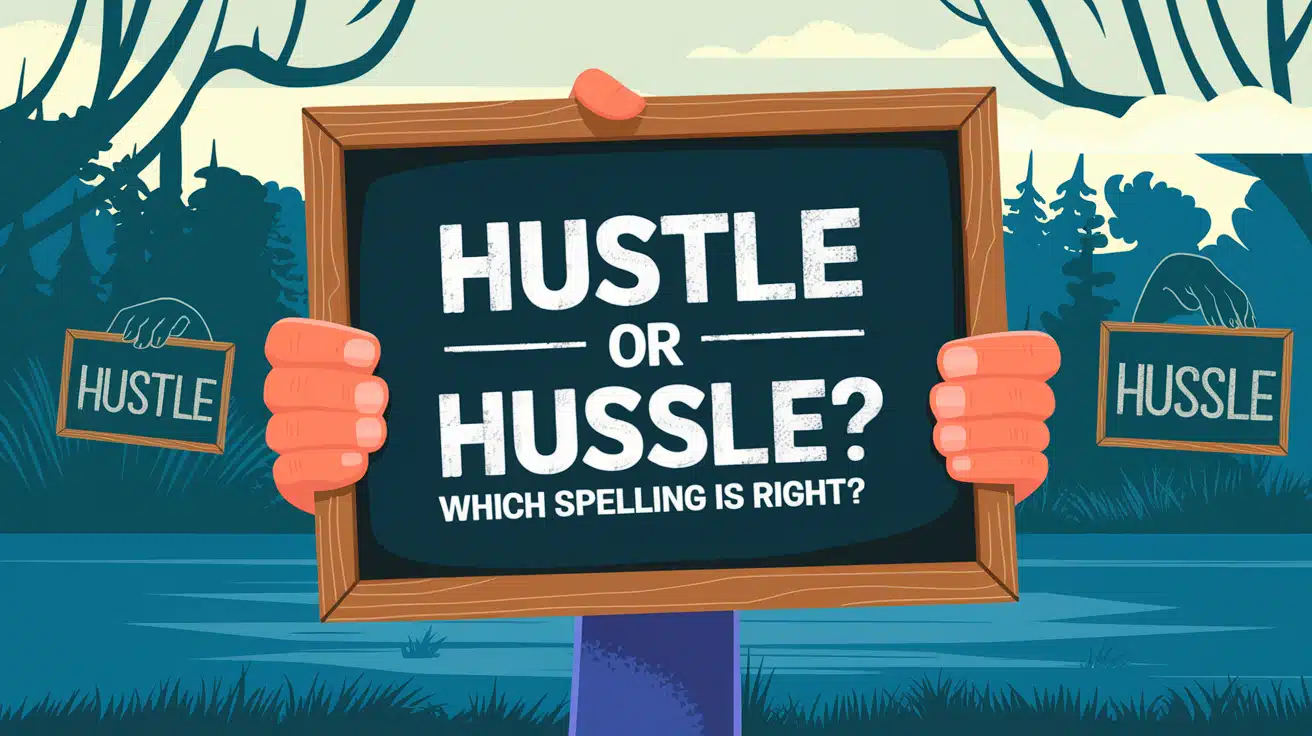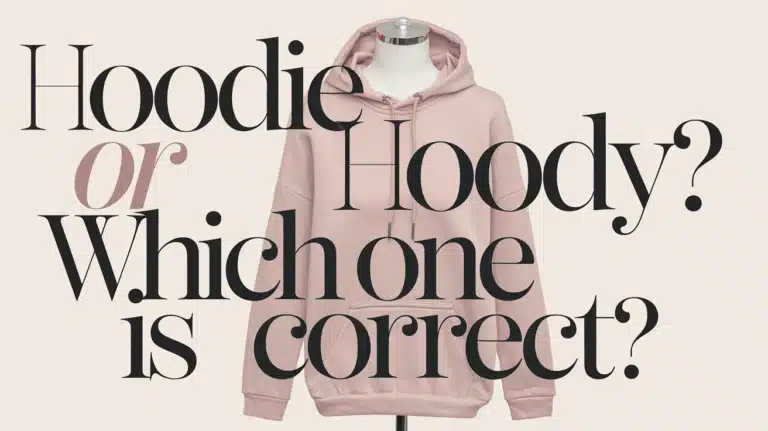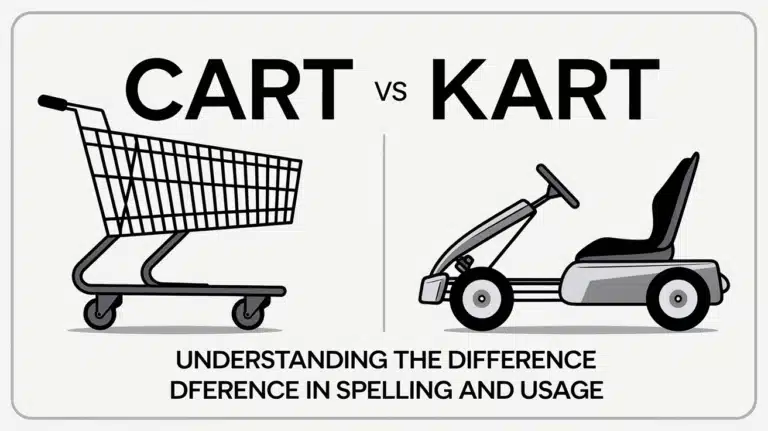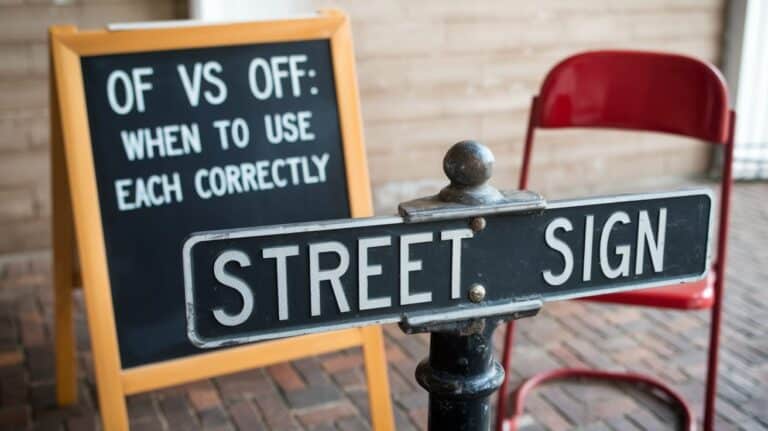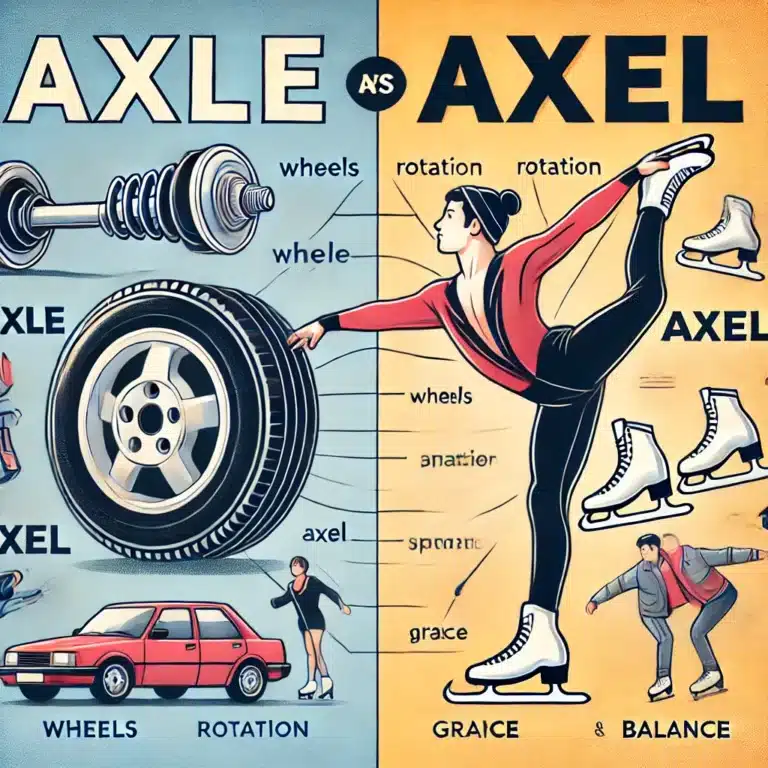Hustle or Hussle: which spelling is correct?
In today’s busy world, “hustle” is often seen as the key to success. But here’s a question that might have you wondering: Is it spelled “hustle” or “hussle”? This article will clear up the confusion by explaining the correct spelling, where the word comes from, and why it matters. Whether you love learning about language, are working hard to reach your goals, or just want to spell it right, this simple guide will help you settle the hustle vs. hussle debate once and for all!
The Definitive Answer: Hustle is Correct
Let’s cut to the chase: “Hustle” is the correct spelling. This isn’t just a matter of preference; it’s a fact backed by standard dictionaries and centuries of usage. The word “hustle” has been a part of the English language since the 17th century, derived from the Dutch word “husselen,” meaning to shake to and fro.
Origin and Historical Usage
The journey of “hustle” through time is as dynamic as its meaning:
- 1680s: First appears in English, meaning “to shake or toss”
- 1700s: Evolves to mean “to shove or push roughly”
- 1800s: Takes on the sense of “to move hurriedly”
- Early 1900s: Begins to be associated with illegal or unethical business practices
- Late 20th century to present: Embraces the positive connotation of working diligently and energetically
This evolution showcases how “hustle” has adapted to changing times, always maintaining its core essence of movement and energy.
Read More About : Set vs Sit: The Ultimate Guide to Using These Tricky Verbs
Why “Hussle” Persists Despite Being Incorrect
Despite the clear verdict, “hussle” continues to pop up in various contexts. Here’s why:
- Phonetic similarity: The words sound identical when spoken, leading to confusion in writing.
- Influence of slang and creative spellings: Urban culture often plays with language, creating alternate spellings.
- The Nipsey Hussle effect: The late rapper’s stage name popularized this spelling variant.
- Digital communication: Quick typing and autocorrect failures contribute to the spread of misspellings.
Unraveling the Confusion
The hustle vs. hussle debate isn’t just about letters; it’s a fascinating glimpse into how language evolves and adapts.
Phonetic Similarity and Common Mispronunciation
Both “hustle” and “hussle” are pronounced identically: /ˈhʌsəl/. This identical pronunciation is the root cause of the spelling confusion. In linguistics, this phenomenon is known as homophony – words that sound the same but have different spellings and meanings.
Influence of Regional Accents and Dialects
Across the English-speaking world, subtle differences in pronunciation can further muddy the waters:
| Region | Pronunciation Tendency |
|---|---|
| American English | Clear distinction between ‘hus’ and ‘tle’ |
| British English | Softer ‘t’ sound, sometimes closer to ‘hussl’ |
| Australian English | Often elongated first syllable: ‘haasl’ |
These regional variations can reinforce incorrect spellings, especially when people write as they speak.
Impact of Digital Communication and Social Media
The digital age has revolutionized how we communicate, sometimes at the expense of spelling accuracy:
- Text messaging: Abbreviations and phonetic spellings are common
- Social media: Viral trends can spread misspellings rapidly
- Autocorrect: While helpful, it can sometimes suggest incorrect spellings based on frequency of use
Diving Deep: What Does “Hustle” Really Mean?
The word “hustle” is as versatile as the go-getters it often describes. Let’s break down its multifaceted meanings:
Traditional Definitions and Usage
- Verb: To move or work energetically and rapidly
- “She hustled to finish the project before the deadline.”
- Noun: Busy movement and activity
- “The hustle and bustle of New York City never stops.”
- Slang: To obtain something by energetic activity
- “He hustled up some tickets for the sold-out concert.”
Evolution of Meaning in Modern Context
In recent years, “hustle” has taken on additional layers of meaning:
- Entrepreneurial spirit: Relentless pursuit of business goals
- Side gig: A secondary job or business venture
- Lifestyle: A mindset of constant productivity and ambition
“Hustle isn’t just doing the things you love all the time. Hustle is doing the things you don’t enjoy sometimes to earn the right to do the things you love.” – Gary Vaynerchuk
Positive and Negative association
The word “hustle” carries both positive and negative associations:
Positive:
- Determination
- Hard work
- Resourcefulness
- Ambition
Negative:
- Overwork
- Burnout
- Unethical practices
- Scams or illegal activities
The Curious Case of “Hussle”
While “hussle” is technically a misspelling, it has carved out its own niche in popular culture.
Origins as a Misspelling
“Hussle” likely emerged as a common misspelling due to its identical pronunciation with “hustle.” Over time, it gained traction through repeated use, especially in informal writing and urban slang.
Nipsey Hussle’s Impact on Popularizing the Alternate Spelling
Ermias Joseph Asghedom, known professionally as Nipsey Hussle, was an American rapper, activist, and entrepreneur. His stage name played a significant role in popularizing the “hussle” spelling:
- Born: August 15, 1985
- Died: March 31, 2019
- Notable achievements: Grammy-nominated album “Victory Lap”
- Legacy: Community activism and entrepreneurship in South Los Angeles
Nipsey’s choice of spelling was intentional, blending the concept of hustle with a unique, memorable brand.
Use in Branding and Artistic Expression
Following Nipsey Hussle’s example, “hussle” has been adopted by various brands and artists:
- Clothing lines (e.g., “Hussle Hard”)
- Music albums and tracks
- Motivational speaking programs
This creative use of spelling demonstrates how language can be molded for artistic and commercial purposes.
“Hustle” vs “Hussle”: Beyond Spelling
The choice between “hustle” and “hussle” often goes beyond mere orthography.
Contextual Usage Differences
- Hustle: Primarily used in formal writing, business contexts, and standard English
- Hussle: More common in informal settings, urban culture, and artistic expression
Cultural and Generational Perceptions
Different generations and cultural groups may view these terms differently:
| Group | Perception of “Hustle” | Perception of “Hussle” |
|---|---|---|
| Baby Boomers | Hard work, possibly negative connotations | Likely seen as a misspelling |
| Gen X | Entrepreneurial spirit | Urban slang, possibly unfamiliar |
| Millennials | Positive, aspirational | Creative, brand-oriented |
| Gen Z | Part of “hustle culture” | Cool, associated with hip-hop culture |
Legal and Trademark Considerations
When it comes to business names and trademarks, the spelling choice can have legal implications:
- “Hustle” is more likely to be accepted in formal business registrations
- “Hussle” might be seen as more distinctive for trademark purposes
- Companies should consult legal experts when deciding between the two for branding
The Many Faces of Hustle
The concept of hustle permeates various aspects of modern life.
In Business and Entrepreneurship
“Hustle” has become a rallying cry for entrepreneurs and startups:
- Startup hustle: The intense effort required to launch a new business
- Side hustle: Secondary business ventures or gigs
- Hustle culture: A lifestyle centered around constant work and productivity
“The dream is free. The hustle is sold separately.” – Unknown
Sports Terminology and Usage
In sports, “hustle” takes on specific meanings:
- Basketball: Quick, aggressive play, especially on defense
- Baseball: Running at full speed, often to beat a throw
- Football: Giving maximum effort on every play
Street Culture and Slang
In urban settings, “hustle” often refers to:
- Making money through various means, sometimes illegally
- Surviving and thriving despite challenging circumstances
- Showcasing street smarts and resourcefulness
Hustle Culture and Its Critics
While hustle culture promotes hard work and ambition, it has faced criticism:
Pros of Hustle Culture:
- Encourages productivity and goal-setting
- Promotes self-reliance and entrepreneurship
- Can lead to rapid career advancement
Cons of Hustle Culture:
- May promote burnout and unhealthy work-life balance
- Can undervalue rest and personal time
- Might perpetuate unrealistic expectations of success
Mastering the Art of “Hustle”
To truly understand “hustle,” it’s helpful to explore its linguistic landscape.
Synonyms and Related Terms
- Bustle
- Scramble
- Strive
- Grind
- Exert oneself
- Bust a move
- Get cracking
Crafting Impactful Sentences with “Hustle”
- “Her relentless hustle turned a small startup into a Fortune 500 company.”
- “In the crowded job market, you need to hustle to stand out from the competition.”
- “The city’s hustle and bustle energized him, inspiring new business ideas daily.”
Tips for Proper Usage in Various Contexts
- Formal writing: Stick to “hustle” and use it sparingly
- Business communications: Emphasize the positive aspects of hustle
- Creative projects: Feel free to play with “hussle” if it fits your brand
- Sports reporting: Use “hustle” to describe energetic, all-out effort
The Linguistic Journey of “Hustle”
The word “hustle” has a rich history that reflects changing societal values and linguistic trends.
Historical Origins and Evolution
- Middle Dutch: “hutselen” – to shake
- Old English: “hustlian” – to shake, toss
- Middle English: “hustle” – to shake, push roughly
- Modern English: Multiple meanings, from movement to entrepreneurial spirit
Notable Appearances in Literature and Media
- 1684: First recorded use in English literature
- 1920s: Appears in jazz age literature, often with negative connotations
- 1970s: Popularized in disco culture (“Do the Hustle”)
- 2000s onwards: Frequent use in business and self-help literature
Cross-language Influences and Adaptations
“Hustle” has made its way into other languages, often as a loanword:
- French: “Le hustle” – used in business contexts
- Japanese: “ハッスル” (hassuru) – to work energetically
- Spanish: “Hustle” is sometimes used untranslated in business jargon
Practical Implications of the Correct Spelling
Using the correct spelling of “hustle” is more than just a matter of grammatical accuracy; it can have real-world impacts.
Importance in Professional Communication
- Resumes and cover letters: Correct spelling demonstrates attention to detail
- Business proposals: Professionalism is key in high-stakes documents
- Corporate communications: Consistency in spelling maintains brand integrity
SEO and Online Discoverability
- Keyword optimization: “Hustle” is the primary keyword for search engines
- Content creation: Using the correct spelling improves search rankings
- Local SEO: “Hustle” is more likely to be used in business names and descriptions
Brand Identity and Marketing Considerations
- Company naming: “Hustle” is safer for broad appeal
- Niche marketing: “Hussle” might be used for specific urban or youth-oriented brands
- International markets: “Hustle” is more widely recognized and understood
Fun Facts and Cultural Impact
The concept of hustle has left an indelible mark on popular culture.
Famous Quotes and Sayings About Hustle
- “Good things come to those who hustle.” – Anais Nin
- “Hustle beats talent when talent doesn’t hustle.” – Ross Simmonds
- “Hustle in silence and let your success make the noise.” – Unknown
“Hustle” in Pop Culture
- Movies: “Hustle & Flow” (2005), “American Hustle” (2013)
- Music: “The Hustle” by Van McCoy (1975), “Hustlin'” by Rick Ross (2006)
- TV Shows: “Hustle” (BBC series, 2004-2012)
Memes and Social Media Trends
- #RiseAndGrind: Often paired with hustle-related content
- “Hustle and Heart Will Set You Apart”: Popular motivational phrase
- Hustle Bingo: Social media game highlighting different aspects of hustle culture
Conclusion:
As we’ve explored, the world of “hustle” is rich, complex, and ever-evolving. While “hustle” remains the correct spelling, the emergence of “hussle” as a cultural variant shows the dynamic nature of language. Whether you’re using it in a business plan, a motivational speech, or a casual text, understanding the nuances of “hustle” can help you communicate more effectively.
Remember, precision in language often reflects precision in thought and action. So as you go forth to hustle in your own life, carry with you not just the spirit of hard work and determination, but also the knowledge to express it correctly. After all, in a world that values hustle, getting the details right can make all the difference.
FAQs
Q: Is “hussle” ever acceptable?
A: While “hussle” is technically incorrect, it’s sometimes used creatively in branding or artistic contexts. However, in formal writing, “hustle” is always the correct choice.
Q: How do I remember the correct spelling?
A: Think of other words with similar endings like “rustle” or “bustle.” The “-le” ending is consistent across these words.
Q: Are there any exceptions to using “hustle”?
A: The only notable exception is when referring specifically to Nipsey Hussle or brands that intentionally use the “hussle” spelling as part of their identity.

